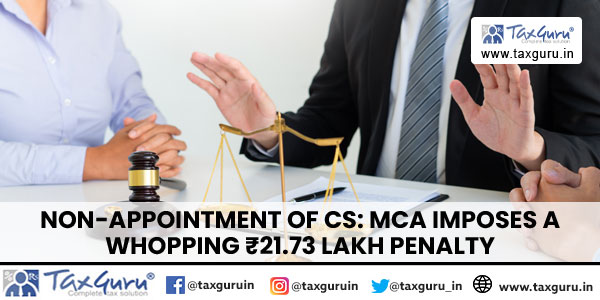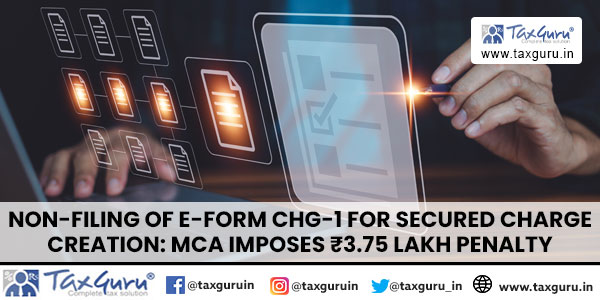Case Law Details
High Court held In the case of CIT vs. Rakesh Mahajan that the income or profits as ascertained and determined by the assessee himself cannot always be accepted as correct because it is the duty of the A.O. to consider whether the books disclose the true state of accounts and whether the correct income can be deduced there from.
Facts of the Case
The assessee is a Civil Contractor, who filed his return for Assessment Year 2005-06 declaring income from Govt. contracts as well as from running trucks on hire. It was stated in the return that the assessee owned 15 trucks out of which 9 trucks were run on hire and the income there from had been declared on estimate basis under Section 44AE of the Income Tax Act .The remaining 6 trucks were used in the contract business and expenditure incurred on the same was included in the freight expenses of Rs.1,18,82,601/-. In the course of assessment proceedings, the A.O. noted that no expenses on diesel and fuel had been shown in respect of the trucks run on hire on the ground that net receipts from the trucks were declared on estimate basis under Section 44AE. On the other hand, huge expenses of Rs.1,18,82,601/- were debited against the contract income on account of freight and carriage and no details could be furnished by the assessee to show the break-up of these expenses in respect of each of the six trucks stated to be used in the contract business.
Since it was not possible to verify the actual expenses on freight incurred in the contract business, the A.O. held that the accounts were incorrect and incomplete and that the net income from contracts had been suppressed by inflating the expenses on freight. The A.O., therefore, rejected the books of accounts under Section 145(3) and estimated net profit from contract at 8% of gross receipts which came to Rs.96.73/- lacs. After giving credit for income already declared from contract as well as from running of trucks, the A.O. made an addition of Rs. 28, 10,914/- to the contract income declared and further found that depreciation on trucks stated to be run on hire had been claimed at 40% and since the assessee was unable to specify the trucks that were actually used in the hiring business, he held that the enhanced rate of depreciation was not allowable and that depreciation should be allowed on all trucks at the normal rate of 25%. Accordingly, further addition of Rs.1,43,971/- was made on account of depreciation on trucks.
Contention of the Assessee
The ld counsel of the assessee submitted that order passed by the ITAT is in accordance with law and, therefore, called for no interference. The learned counsel for the assessee would, however, argue that the assessee was maintaining regular books of accounts which were duly verified and audited, therefore, on mere suspicion the accounts could not have been rejected. He would further argue that the A.O. had infact failed to pin-point any expenditure claimed to be un-vouched and it was only on conjectures, surmises and suspicion that the books of accounts had been rejected.
Contention of the Revenue
The ld Senior counsel of the revenue submitted that decision of the ITAT on the issue of rejection of books of accounts and estimation of income from contract business is absolutely erroneous as it has failed to appreciate the provisions of Section 145(3) read with Section 144 of the Act. It is further contended that while assessing the income of the assessee from running of the trucks on hire, the provisions of Section 44AE have been completely ignored.
Held by CIT (A)
CIT (A) held that the freight expenses of Rs.1.18 crores debited in respect of the six trucks used in the contract business were clearly excessive and since there was no evidence to show that such expenses were only in respect of these six trucks to the exclusion of the other nine trucks run on hire, the accounts had been correctly rejected and net profit had been rightly estimated by the A.O. The disallowance on account of depreciation was also confirmed by the CIT (A).
Held by ITAT
ITAT held that books of account in respect of the contract business had been found by the A.O. to be properly maintained and that no instance had been brought out to show that any expenses on trucks used in the hiring business had been debited in the accounts of the contract business. It was further observed that details of expenses of Rs. 1.18 crores had been furnished by the assessee and these included payment of hire charges for which partywise details were furnished and on which tax had been deducted at source. Thus, the freight expenses could not be considered to be excessive or incorrect and no specific reason had been brought out by the A.O. which could lead to the rejection of the books of account and it was held that the A.O. was not justified in rejecting the accounts and in estimating the contract profits to be higher than that declared. It was also held that since the A.O. had accepted the income declared from hiring of trucks, there was no reason to restrict the depreciation allowable on the trucks run on hire and accordingly deleted the addition of Rs.1,43,971/- on this account also.
Held by High Court
No separate accounts were maintained in respect of gross hiring receipts, diesel expenses and salaries of the drivers and helpers. Therefore, we are, prime facie, of the considered view that looking into the nature of the accounts maintained , the A.O. had rightly expressed his doubt regarding the correctness thereof. The assessee failed to give any reasonable explanation except maintaining that earlier also these accounts had been accepted by the A.O. This cannot be a valid explanation, more particularly, when the books of accounts have been rejected mainly on the ground that the assessee was unable to convince the A.O. that freight and expenditure of Rs. 1,18,82,600/- debited in the contract account do not pertain to the expenditures on balance nine trucks.
We are not agree with the contention of the assessee that he was maintaining proper books of account for the reason that not only were the accounts properly maintained, but even the freight and carriage expenses debited in the profit and loss account at Rs. 1,18,82,600/- are far too excessive, particularly keeping in view the fact that only six trucks were used for contract business. Further, the freight and carriage expenses that were debited were not segreable from unvouched expenses for plying of other nine trucks for which profit had been shown under Section 44AE of the Act. Admittedly, the assessee had failed to segregate expenses of the contract business from other nine trucks. Therefore, in such circumstances, no credence whatsoever could have been given to the books of accounts.
We are not satisfied that the reasoning given by the ITAT to reverse such findings only on the ground that the A.O. ought to have satisfied that either the accounts maintained were incorrect or incomplete or the method of accounting followed was such as would not lead to correct estimation of income. We are further failed to understand how the burden to establish that the books of accounts maintained were incomplete or incorrect would rest upon the A.O. Merely because no one had earlier cared to scrutinize the accounts furnished by the assessee could not be a ground to dislodge the order passed by the A.O. Even otherwise, there is no presumption in law attaching presumption of correctness to the continuity of income tax returns. The assessments of each year have to be viewed and scrutinized independently as these are separate and distinct assessments.
The assessee had claimed truck running expenses at Rs.1,18,82,600/-, but the same was only for six trucks being used for the contract business being carried out by the assessee which apparently was an impossibility, more particularly, when the assessment relates to the Assessment Year 2005-06, when the value of rupee was far more higher than today.
In Commissioner of Income Tax vs M/s. Mcmillan and Co., AIR 1958 SC 207, the Hon’ble Supreme Court has laid down that if true income or profit cannot be ascertained on the basis of the assessee’s methods of preparing accounts, then income must be computed upon such basis and in such a manner as the ITO may determine. This infact is the underlying principle enshrined under Section 145(3) which directs the A.O. to compute the income according to his best judgment in case where the accounts are found by him to be incorrect or incomplete.
Similarly, in Commissioner of Income Tax vs British Paints India Ltd. (1991) 188 ITR 44, the Hon’ble Supreme Court has further held that it is not only a right but duty of the A.O. to consider whether the books have disclosed the true state of accounts and whether the correct income can be deduced therefrom.
The division bench judgment of the Bombay High Court in Dhondiram Dalichand versus Commissioner of Income Tax, Poona (1971) 81 ITR 609, wherein it has been held that in absence of quantitative details of stock, which made it impossible to verify the correctness of stock shown, the method of accounting was such that the correct profit could not be deduced therefrom and the AO was justified in rejecting the accounts and determining profits, is squarely applies to the current case where the AO has found that it was impossible to verify the correctness of the expenses on freight debited in the contract account, and hence impossible to deduce the correct income from the accounts
Accordingly, appeals of the revenue allowed.


























